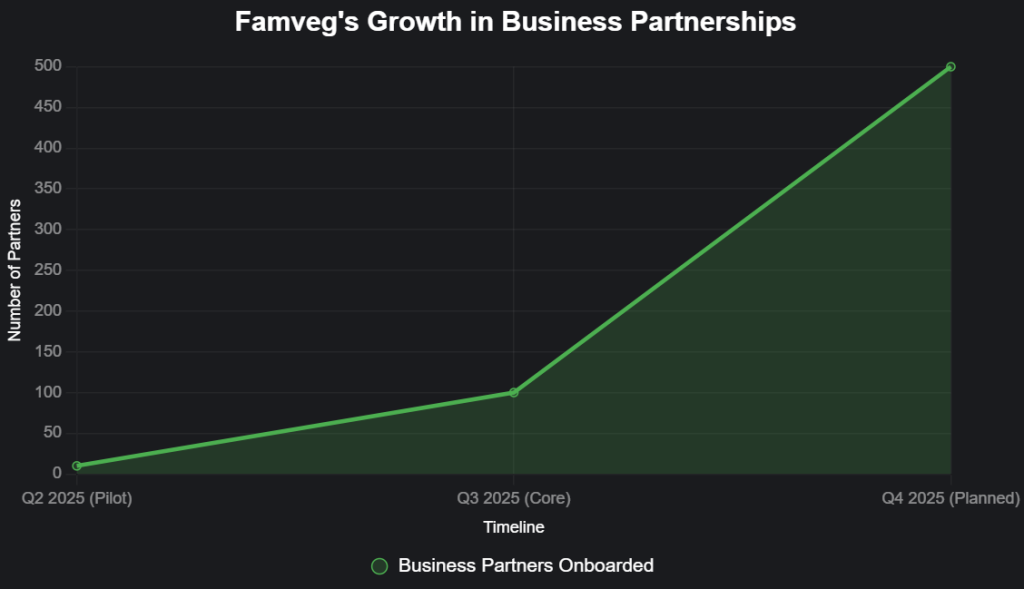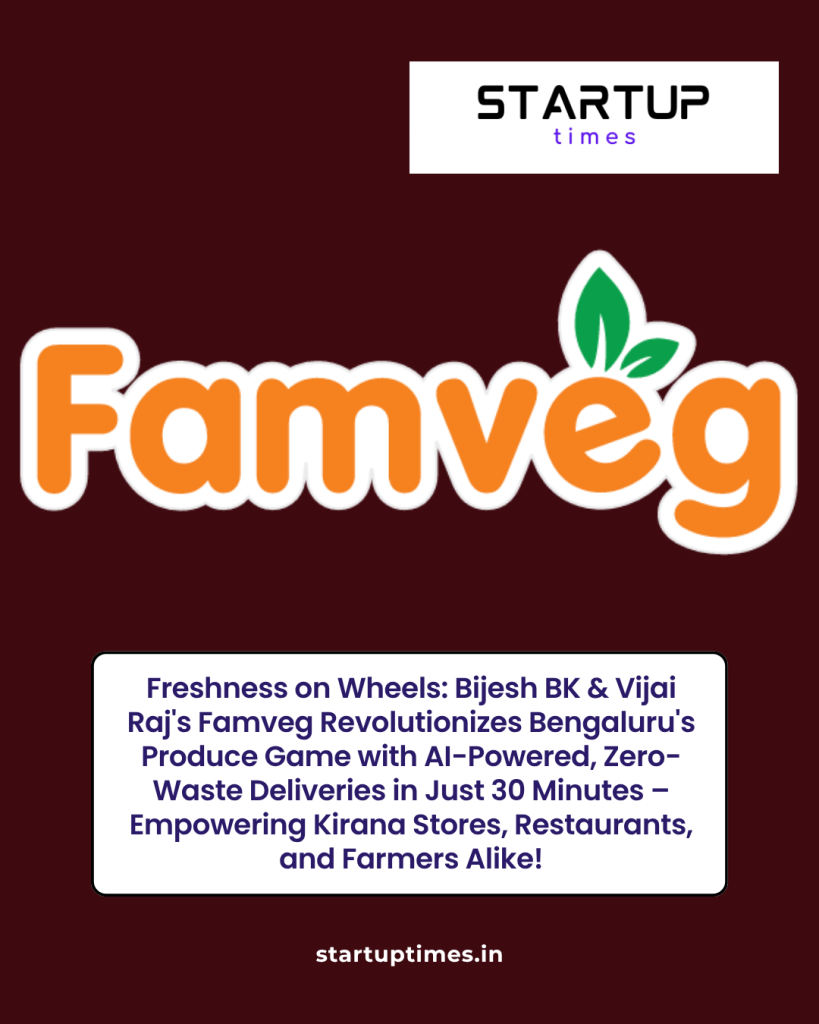Bengaluru, October 15, 2025 – In a city where fresh produce spoils faster than it sells, Famveg is changing the game for local kirana stores and restaurants. Co-founded by Bijesh BK and Vijai Raj in early 2025, the startup’s tech-driven supply chain ensures ultra-fresh fruits and vegetables delivered in under 30 minutes, slashing waste and costs. This innovation arrives at a pivotal time, as India’s agritech sector grapples with sustainability amid urban food demands.
Table of Contents
From Pilot to Promise: The Founding Story
Bijesh BK, the CEO, and Vijai Raj, co-founder, drew from years in supply chain and tech to launch Famveg as Khowang Exotic Food Solutions LLP—wait, no, as a Bengaluru-based venture focused on the city’s vibrant local economy. Their idea stemmed from observing how small businesses lose up to 20% of inventory to spoilage due to unreliable sourcing.
Starting with a hyper-local pilot in one pincode three months ago, Famveg tested its model with a handful of partner shops. “We started with a single pincode to focus deeply on solving the real operational challenges of local businesses,” Bijesh BK told The Times of India in an October 2025 profile. The pilot’s success—zero reported waste incidents and glowing feedback—paved the way for broader rollout.
Tech at the Core: AI, Speed, and Sustainability
Famveg’s edge lies in its integrated platform: an AI-powered forecasting engine predicts demand to minimize overstock, while a mobile and web app streamlines orders for businesses. Produce is sourced directly from farmer cooperatives, ensuring traceability and fair pricing.
Deliveries happen via a fleet of electric bikes for that crucial 30-minute window, enabling just-in-time stocking. This reduces storage needs for kirana owners and keeps restaurant kitchens stocked with peak-fresh ingredients. “Our mission is to make fresh, local, and sustainable produce easily accessible, while building a zero-waste, farmer-friendly future,” Bijesh added in the same interview.
The zero-waste ethos extends to packaging: biodegradable materials and portioned deliveries cut excess. Early partners, including neighborhood grocers in Indiranagar, report 15-25% cost savings, per initial feedback shared on the company’s LinkedIn.
Scaling Up: Expansion and Early Wins
Fresh off the pilot, Famveg is now live across central Bengaluru, with plans to enter high-demand areas like HSR Layout, Koramangala, and Bellandur by year-end. The founders aim to onboard 500 businesses in the next six months, leveraging data from the pilot to refine operations.
Vijai Raj, handling tech and partnerships, emphasized scalability in a startup forum: “From single outlets to chains, our system adapts without compromising quality.” This B2B focus differentiates Famveg from consumer-facing apps, targeting the underserved backbone of India’s retail—over 12 million kirana stores nationwide.
While bootstrapped initially, the duo is eyeing seed funding to fuel fleet growth and AI enhancements, amid a agritech funding uptick in 2025.
Famveg’s Expansion Phases

Source: Company projections cited in The Times of India and startup announcements.
Impact on Local Ecosystems
Famveg’s model empowers small businesses by leveling the playing field against big suppliers, while supporting farmers with steady, predictable orders. In Bengaluru’s competitive F&B scene, where waste contributes to 40% of food losses per industry estimates, this startup’s approach promotes sustainability without premium pricing.
The founders’ farmer-first philosophy includes training sessions on sustainable practices, fostering long-term rural-urban links. As Vijai noted, “We’re not just delivering produce; we’re connecting communities for a greener tomorrow.”
Broader Relevance and Road Ahead
In India’s $500 billion fresh produce market, where inefficiencies plague 30% of the chain, Famveg exemplifies how tech can drive inclusive growth. It creates jobs in logistics and sourcing, boosts local economies, and aligns with national goals like zero hunger and sustainable agriculture.
With expansions on the horizon, Bijesh and Vijai envision Famveg as a pan-India network. Their story—from pinpoint pilot to city-wide promise—shows that targeted innovation can nourish both businesses and the planet. As Bijesh reflected, “Freshness isn’t a luxury; it’s the foundation of trust in every transaction.”
In a fast-urbanizing India, Famveg reminds us that sustainable supply chains start small but feed big.

Last Updated on Wednesday, October 15, 2025 4:42 pm by Startup Times

